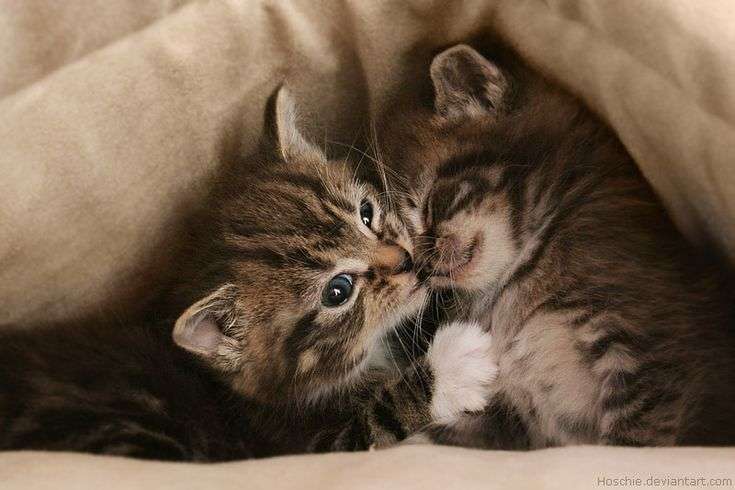
Why does my cat lick me then bite me? — Cats are generally considered as cute, lovable creatures that are known to express themselves in few of the strangest ways possible. One of them is your cat licking and biting you.
Hence, there is little or nothing to worry about. There are some suitable answers to your why question. That is, “why does my cat lick me then bite me?”
It is quite common for cats to lick their owners, but then it becomes quite strange, especially for new cat owners when the complain is why does my cat lick me then bite me. It is easy for some to consider this sudden act as aggressive, while some may perceive it as quite endearing, even though strange.
Either way, you may be right. At the same time, you understanding of why your cat lick then bite you might be totally erroneous.
Now, let’s consider some of the reasons your cats chose to react in such a way.
6 Reasons: Why Does My Cat Lick Me Then Bite Me
Here are some of the common explanation to why your cat lick and bite you.
1. Showing Love
The first explanation to this strange act exhibited by your cat could be nothing other than a mere expressive act of affection. The cat licking and biting could just be their subtle language of showing and telling you how much they love you.
Hence, don’t fret. And keep you mind off the question as to why does my cat lick me then bite me.
Most especially, this is bound to occur when you have been apart from your cat for a long time. Hence, they tend to be more aggressive, that is—cat licking and biting while showing their affections.
2. Grooming
Your cat can lick you then bite you while in the grooming process. They might consider you as a bigger cat. Moreover, grooming is generally considered as a positive sign of bonding between the cat and its owner.
Also Read: Body Composition Test: How To Measure Your Body Fat
It is quite normal for cats to lick and bite while grooming. This happens when they can’t quite get something off their fur or wanted to scratch an itch.
Hence, cat licking and biting shouldn’t be much of a problem considering this.
3. Attention
Your cat might be seeking attention from you. Cats are usually an attention seeking creatures, most especially to their owners. Hence, the repeated act of licking and biting from your cat might be to get your attention to something. For instance, it might be in need of food.
At the same time, your car might want to play with you. As a result, try to get your attention by licking and biting.
In essence, the possibility of what it is actually directing attention to depends on the situation.
4. Frustration or Overstimulation
It is always important to understand your cat, in respect of how much it wants to be cuddled, played with, or left alone. Doing too much of any of this might result to an aggressive response form your cat.
Hence, your cat may lick and then bite you afterwards due to overstimulation. This is not strange. It is just a matter of you understanding the bars between comfort and discomfort.
Also Read: 8 Banks That Offer Insurance
5. In Pain or Sick
Another possible explanation to why your cat lick and then bite you is to show that they are in pain, or discomfort.
For instance, it is possible you might have stroked or touched a tender part of their body, and as result may spark such aggressive reaction from your act.
This may also be a sign that your cat is sick. Hence, if this act becomes more persistent overtime, it is better to take it to a vet for checkout.
Conclusion
Cats may lick and then bite you in quick succession for a various reasons. Usually, your best bet to understand this erratic behaviour is to pay attention to your cat’s other behaviors and body language. This would possibly give you a clue as to why your cat is licking and biting you.
Noteworthy, while this behaviour of cat licking and biting is typically nothing to worry about, it can be a sign that something is wrong. As earlier stated, it might as a result of sickness or wound. Therefore, if your cat has suddenly started biting and you can’t easily discern the best cause for such action, we advise speaking with your vet.


